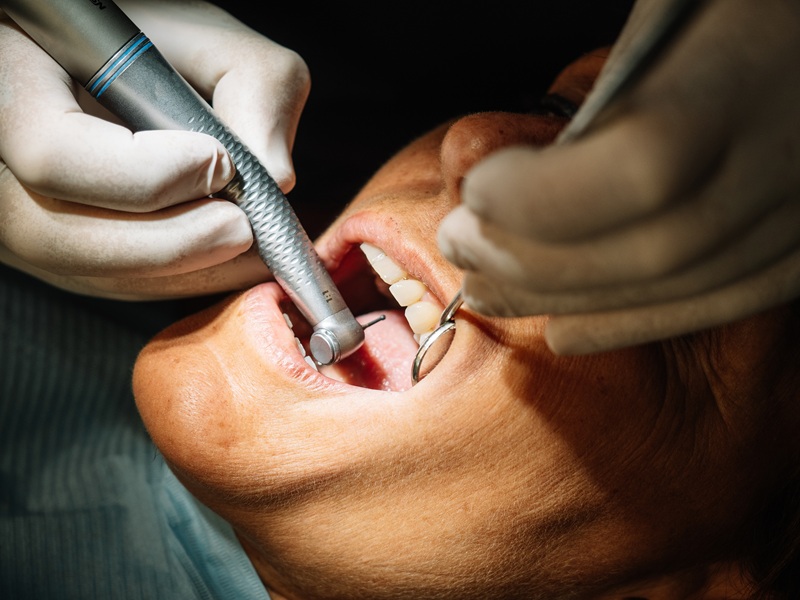What Age Is Suitable for No-Drill Dentistry?

For some people, going to the dentist is one of the most uncomfortable things they dread doing as they always think of things like drills, needles and uncomfortable procedures. However, in the topic of drills, modern dentistry has now made it possible to offer no-drills dentistry to people.
The catch is not all people are suitable to get this type of procedure done. Who is it exactly for? What age is it suitable to get a no-drill dentistry?
Let’s find out!
What Is No-Drill Dentistry?
In Australia, one out of three Australian adults, or individuals aged 15 and up, has untreated tooth decay. That’s approximately 30% of the national population. For children aged 5-10 years, 42% of their population has untreated tooth decay, while 24% are aged 6-14 years old also have tooth decay that is not treated.
One of the most common reasons why a large number of people have untreated tooth decay is because of their anxiety about dental procedures, especially when this involves drilling the teeth. Then, here comes no-drill dentistry.
No-drill dentistry is a gentler and minimally invasive approach to managing tooth decay. Traditionally, when a tooth has a cavity, a dentist needs to remove the decayed part using a dental drill, then fill it with a material to restore the tooth.
With no drill dentistry, the dentist does not have to drill out the decay anymore. Instead, they will use a special medicine, called silver fluoride or silver diamine fluoride (SDF), which is applied to the affected area where the decay is spotted. With the help of the silver fluoride solution, it helps stop the decay in its tracks by:
- Killing the bacteria that cause the cavity because of the silver component; and
- Hardening the surface of the tooth, which is done by fluoride
In some cases, the tooth may also have to be sealed with a temporary filling material even without any needles or drilling involved.
What Age Is No-Drill Dentistry For?
A research in the University of Sydney showed that no-drill dentistry can stop the growth of tooth decay by 30 to 50% when it is spotted early on. However, while this treatment is available, the main downside is that it makes the decay portion of the teeth turn completely black.
Unfortunately, not everyone who has tooth decay is willing to accept a big black spot on their tooth. So generally it works best in very specific situations and is most commonly used for two groups of people:
1. Young Children (Paediatric Use)
No-drill dentistry is widely used for young kids, especially those aged under 10 years old. This technique is especially helpful for children with:
- Baby teeth that are already starting to decay
- High anxiety or fear of dental procedures
- Difficulty sitting still in the chair
- Health conditions that make traditional treatment risky
Using kids no drill dentistry allows the dentist to stop early-stage decay without needles, drilling or placing the child under general anaesthesia. Parents and children are often more accepting of dark spots on the baby teeth as these teeth will eventually fall out. And because no-drill dentists will be dealing with baby teeth during those ages, it’s a well-tolerated, quick option for kids that can preserve the baby teeth until they fall out naturally around the age of 12.
2. Elderly or Medically Fragile Adults (Geriatric Use)
On the other end of the age spectrum, no drill dentists may also recommend this method for very elderly patients or those with serious health issues. For example:
- Frail patients who cannot tolerate long procedures
- People in palliative care
- Adults who are not concerned about the appearance of their teeth
In these cases, the goal is to manage the decay in a way that is as stress-free and simple as possible, often just to maintain comfort and reduce the need for complex dental work.
However, a proper consultation with no-drill dentists should still be needed to ensure this particular treatment suits well according to your preference.
Why Not Use No-Drill Dentistry for Everyone?
So, why is no-drill dentistry not for everyone who has tooth decay when it clearly offers convenience to all? Indeed, convenience is one of the many benefits of no-drill dentistry, but every case is unique from one another and every patient holds different preferences.
Here are some of the factors why we do not let anyone get no-drill dentistry when they have tooth decay:
Cosmetic Concerns
One of the main downsides of no-drill dentistry is that the treated area often turns black after applying the silver fluoride. While this is a sign that the medicine is working, most adults do not like how it looks most especially if the black area is visible when they smile or talk. If you’re concerned with this, no-drill dentistry may also be a no-no.
Durability
The temporary fillings used in some cases of no-drill dentistry are not as strong or long-lasting as standard fillings used when your teeth get drilled. For children who still have baby teeth, it is not a big issue as baby teeth will still have to fall out soon. However, for adult teeth, it’s better to have a more permanent option to keep it for a long time.
Effectiveness
This method is best suited for small areas of decay. However, for patients who have tooth decay that is too deep or the tooth is already painful, traditional methods like drilling and filling, or even a root canal, may be more suitable for these cases.
Like any other treatment, it’s best to talk with a skilled and qualified dentist first to help give you more information about your case and treatment options for a more informed decision.
No More Hassle with No-Drill Dentistry
No-drill dentistry holds many benefits for children who have cavities and the elderly who still want to enjoy their natural teeth. No-drill dentistry offers a gentle, low-stress way to manage early tooth decay without any drilling involved.
For a more detailed advice, it’s best to talk with your dentist first. Consult with our team at Whitehorse Dental about our kids’ no-drill dentistry services. While this service is popular with children, elderly patients are also welcome to learn more about this.
Book an appointment with us today to end tooth decay early.



